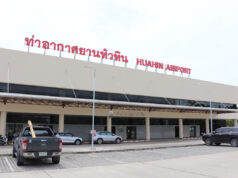What will happen to NAIA? Well, talks about the potential closure of Ninoy Aquino International Airport are in the spotlight once more after Finance Secretary Carlos Dominguez III noted that selling the land it sits on could allow the government to pay down debts racked up during the COVID-19 pandemic.
Nothing is imminent and the future of NAIA hinges upon the integration of New Manila International Airport in Bulacan and Clark International Airport into the National Capital Region. The former is currently under construction while the latter has undergone an expansion and is being connected to Metro Manila through the North-South railway.
“We had thought about that since 2016. But we have to see first how the development of the alternative [airports] to NAIA is developing,” Dominguez told INQUIRER.net. “Clark’s airport, for instance, was already too far from Metro Manila. You have to tie it up also with the development of the North-South railway connecting central and southern Luzon.”
He added should NAIA be closed, the site could potentially host a mixed-use development with the government selling off the land. San Miguel Corp. President and COO Ramon Ang claimed a potential sale could raise upwards of PHP2 trillion due to its size and location. SMC is the firm behind New Manila International Airport. Find land for sale in the Philippines.
Also Interesting: Go inside the Suvarnabhumi Airport secret tunnels
What will happen to NAIA? Work continues on its replacement
Before the future of NAIA can be decided, New Manila International Airport in Bulacan needs to begin operations. And that is still a few years away. Construction on the project began last year with the facility tentatively slated to open in 2025.
The airport will be connected to the North Luzon Expressway as well as the MRT 7 Airport Access-North Line. It’s also part of a larger aerocity being developed by SMC that has now been approved by both the House and Senate.
“(The areocity) is designed, and will be built, with sustainability in mind. It will be properly zoned, with areas dedicated to agriculture and food production, logistics, health and wellness, aeronautics, finance, science and technology, commerce, residences, education, tourism, entertainment, recreation, and government among others,” SMC explained in the statement.
Keep Reading: Why does the Philippines need to develop tourism-focused real estate?

































